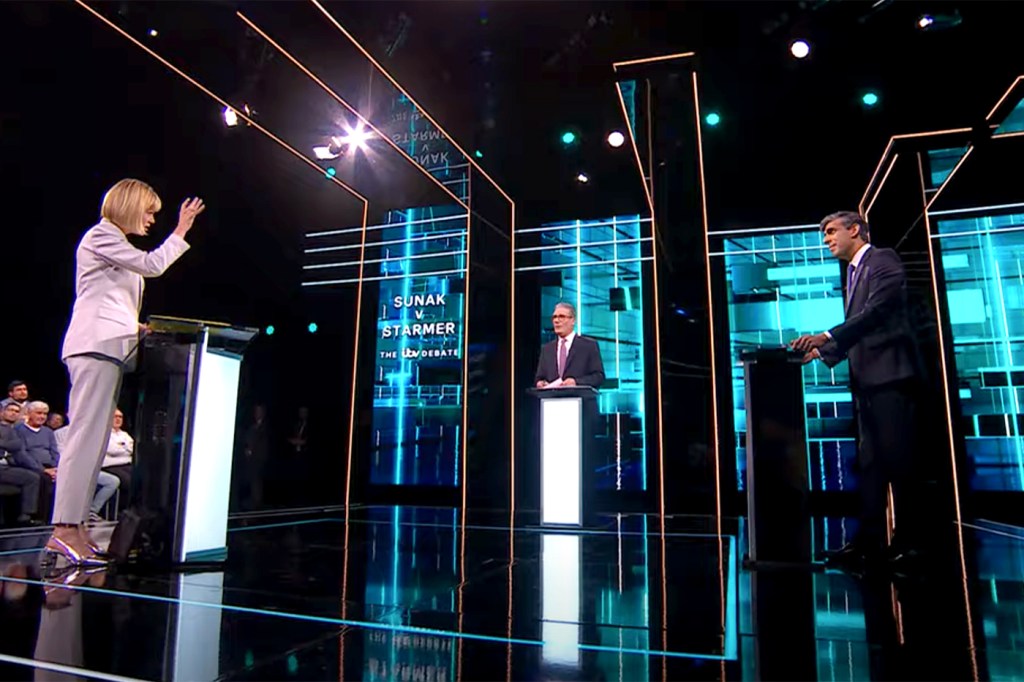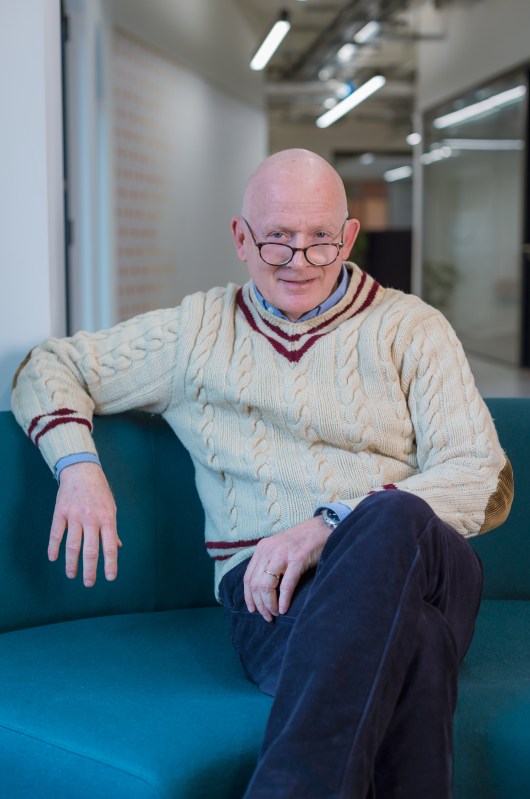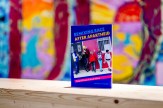What were the two tactical errors made by Keir Starmer in his debate with Prime Minister Rishi Sunak?
Adrian Hillman, an assistant professor of communication at Northeastern, says the debate was a “slugging match” between Rishi Sunak and Keir Starmer.

LONDON — The main question on the lips of Britons after watching the first televised debate between the two prime minister candidates was: Did the current prime minister lie?
Conservative Party leader Rishi Sunak repeated 12 times during Tuesday night’s clash with Labour’s Keir Starmer that his rival’s party would increase taxes by £2,000 ($2,550) for households over the next four years if it wins the election on July 4.
The prime minister said that was the calculation made by the “independent” civil service after the ruling party asked the Treasury department to calculate how much Labour’s spending plans could cost.
But, in a potential blow to Sunak’s credibility, the top civil servant in the Treasury has since distanced himself from the Tory allegation. Permanent secretary James Bowler said what Sunak and his party are alleging “includes costs beyond those provided by the civil service” and should not be portrayed as independent workings.
Labour has since accused Sunak of lying about the £2,000 tax hike — but political commentators are asking why Starmer delayed in rebutting the claim first made by the prime minister in the opening five minutes of the debate. The televised encounter was almost half way through by the time Starmer looked to take the allegation apart, explaining that the calculations Sunak referred to involved policies Labour had not proposed.
Adrian Hillman, an assistant professor of communication at Northeastern University in London, says the failure to knock the tax-rise allegation down earlier was one of “two tactical mistakes” he saw from Starmer during the 70-minute debate.
“He should have killed that in the very beginning,” Hillman says. “The moment it was mentioned, he should have called foul and killed it. He killed it later by saying it was absolute rubbish but by then the damage was done.
“He should have hammered that at the beginning because he allowed Sunak to keep on pushing that issue.”

Starmer’s second error, to Hillman’s mind, came when responding to host Julie Etchingham’s question about whether the leaders would ever pay for private health care for a loved one languishing on a waiting list for an appointment with the publicly-funded National Health Service (NHS), which is struggling to clear its COVID-related backlog.
Sunak said he would but Starmer, a father of two whose wife works in the NHS, said he would never go private. Hillman says Starmer’s answer flew in the face of how most people would respond.
“If your relative is unwell, if your son or your daughter is unwell,” Hillman says, “instinctively anyone out there is going to say, ‘Yes, if I can’t get an NHS appointment, I’m going to find an alternative.’ You don’t play around with health. You sell the bloody car if you have to.
“And that says something about personality. Keir Starmer said ‘no’ and I felt that was a bit contrived. He gave the political answer and I think that was a tactical mistake. It came across in his tone — he wasn’t convincing.”
A snap poll by YouGov of 1,600 viewers after the debate suggested Sunak had marginally been the better performer, 51% to 49%, while other polls published Wednesday, including one by Savanta, put Starmer as the winner by a five-point margin.
Hillman’s assessment is that Sunak was “composed” and that he borrowed from his experience of previous television debates, while Starmer started out “a little bit wooden” before improving as the evening progressed.
The expert in political communication feels Labour’s team, with the opposition party on average 22 points ahead in the polls, will be pleased with the overall performance during what was an “odd format.”
Host broadcaster ITV used pre-selected questions from members of the audience on issues covering a broad range of topics, such as the cost-of-living crisis, immigration and the war between Israel and Hamas, with the two politicians given 45 seconds to reply before being asked follow-up questions by Etchingham.
After the commercial break, both candidates were told off for shouting over each other in what proved to be a fiery first half-hour.
Featured Posts
Both performers managed to get their main points across, Hillman says, with Sunak looking to drive home his message of potentially higher taxes under Labour while Starmer honed in on a wobbly Tory record over the past 14 years that includes Brexit, a chaotic handling of coronavirus and the economic turmoil during the short-lived premiership of Liz Truss.
The trouble for Sunak is that, while YouGov’s survey found him to be the winner, most people watching Tuesday’s debate will have already made up their minds, with Hillman highlighting that the majority of voting decisions are made more than six weeks before polling day.
After a contest of heavy blows between the two heavyweight politicians, Starmer was seen heading over to the prime minister to shake hands as the program credits started to roll. Hillman saw that move as reflective of Starmer’s healthy opinion poll position in his quest to succeed Sunak.
“Muhammad Ali used the phrase ‘rope-a-dope.’ It is when he kept on taking the punches, kept absorbing the opponent’s energy,” Hillman says.
“So at this point, Starmer needs to be able to absorb the punches because he knows he has got more strength right now. He doesn’t need to come out with a knockout blow, he doesn’t need to rush.
“And the idea of shaking hands, that is him saying: ‘I took the punches, I’m unflustered, let’s go to the next round’. I think what we can draw from that is, yes it is a contest, it is a little bit of a slugging match — but this is just round one.
“He has taken the hits. Is Starmer bruised? No, not really. Did the [YouGov] numbers show there was a slight advantage [for Sunak]? Perhaps. But the knockout blow is going to come in four weeks’ time, so just weather the punches.”











